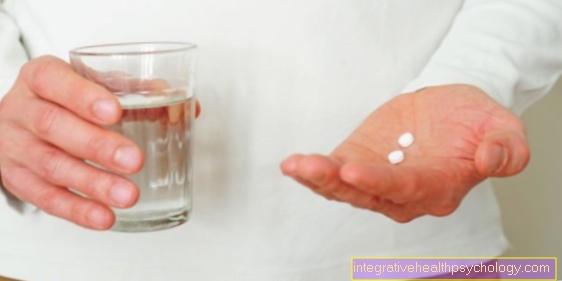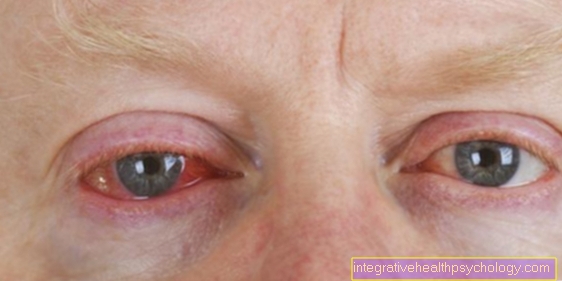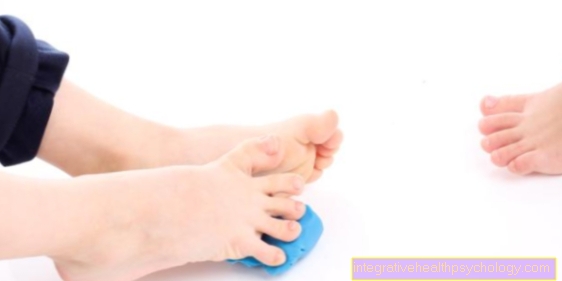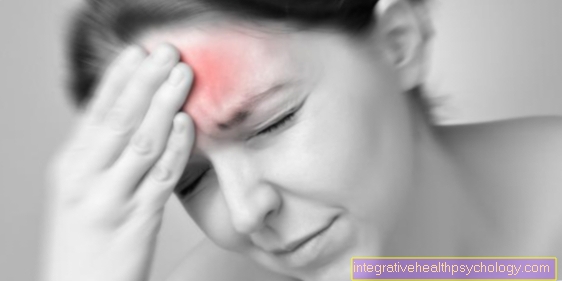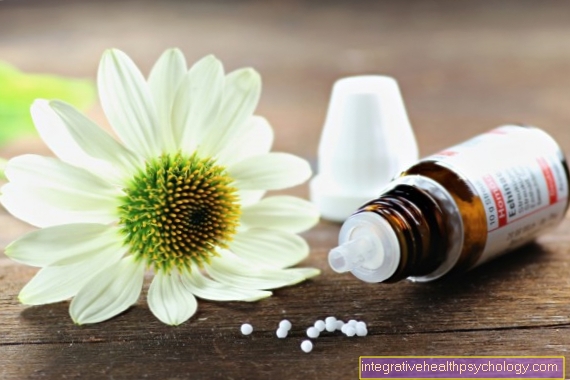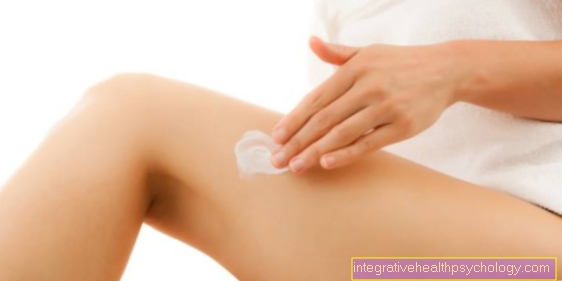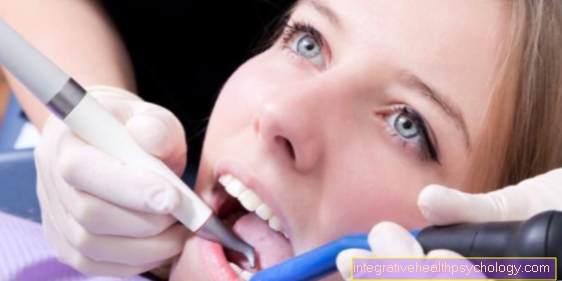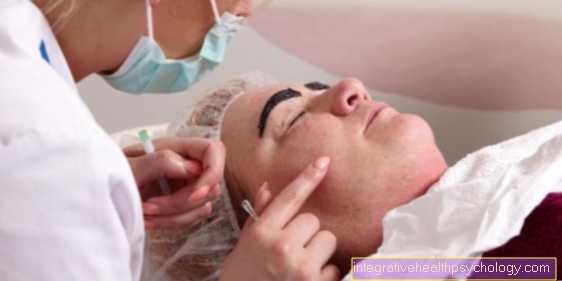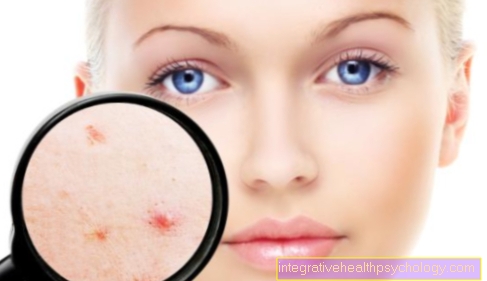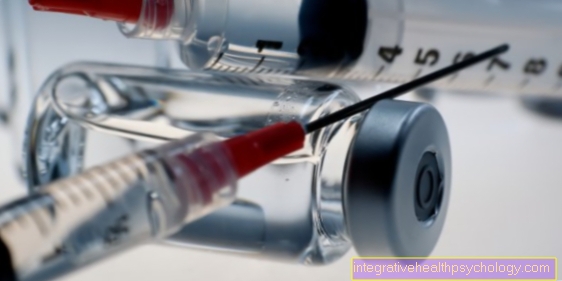Solarium - you should know that
introduction
The solarium is an artificial source of radiation that is supposed to imitate sunlight. Modern solariums offer different levels of UV radiation in order to achieve different degrees of cosmetic skin tan.
In Germany, visits to the solarium are only permitted from the age of 18 on presentation of a valid photo ID. Above all, this has to do with the high health burden caused by regular visits to the solarium.

What damage does a visit to the solarium cause to my skin?
Solariums are designed to imitate the influence of sunlight through targeted exposure to UV light. UV light has beneficial effects on health to a minor extent, but also harmful effects to a greater extent.
The UV radiation induces so-called DNA strand breaks in the DNA of our skin cells. Such DNA strand breaks can up to a certain point be intercepted by the cell's own repair mechanisms and rendered harmless. Too many strand breaks, however, lead to the death of the cells and various damage to the skin structure.
Furthermore, UV radiation can lead to mutations in the skin cells, which then lead to cancer over a certain period of time. Chronic damage to the skin from exposure to UV radiation is also known as actinic keratosis. These so-called precancerous lesions, i.e. precancerous stages, can turn into white skin cancer, also called spinalioma. Black skin cancer (malignant melanoma) is also caused by UV radiation.
Tanning beds can damage not only the skin but also the eyes.
Damage to the cornea caused by visiting a solarium is also known as keratoconjunctivis photoelectrica. About six to eight hours after visiting the solarium, you experience severe pain in the eyes, a foreign body sensation in the eye, tears and reduced visual acuity.
Read more about this: Inflammation of the cornea
What exactly is harmful in the solarium?
The solarium is so harmful because of the high and targeted exposure to UV radiation. UV radiation can have various harmful effects on human health, which are particularly pronounced when people visit the solarium frequently.
In addition, many people are at risk of downright addiction to the solarium, as UV radiation is perceived as very beneficial. Therefore, especially in the winter months, many people tend to make regular visits. The solarium has been proven to promote the skin aging process.
How can I reduce the damage?
In general, we can only expressly advise against visiting the solarium. It is similar to smoking: no consumption is the best prevention.
However, if a person does not want to do without the tanning bed, there are at least a few things that can be done to reduce the damage.
You should always ensure that you stay in the solarium for a short time. A duration of 15 minutes per application should not be exceeded.
You should also pay attention to consistent sun protection of the eyes, otherwise damage to the cornea can occur. In addition, the total number of visits to the solarium should be kept as low as possible, as the health risk increases with each visit. Under no circumstances should there be more than 50 visits per year. However, this is considered the maximum limit.
You should also avoid additional sunbathing, for example on vacation or in your free time. Additional unhealthy behavior, such as smoking or high alcohol consumption, should also be avoided.
Before visiting a solarium, you should have your own cancer risk assessed by a dermatologist. Very fair-skinned people with many moles are at high risk of developing skin cancer.
Please also read:
- What can I do if I am sunburned?
- Skin cancer screening
Can a visit to the solarium cause cancer?
Leading international and national health organizations, above all the WHO, classify the solarium as carcinogenic, i.e. carcinogenic.
The solarium can promote the development of skin cancer and possibly other cancers. The high UV exposure leads to damage in the body cells, which can be associated with degenerate growth and ultimately cancer. Above all, it increases the risk of so-called spinalioma and malignant melanoma.
In the worst case, just a few visits to the solarium can be enough to cause cancer.
Please also read: How can you recognize skin cancer?
What is the best way to take care of the skin after a visit to the solarium?
The solarium exposes the skin to considerable stress. Good care is therefore important after the solarium. However, this cannot minimize the harmful effects, but only improve the appearance of the skin.
Care should be taken to provide rich, moisturizing care. You should apply cream to your entire skin and avoid further exposure to the sun immediately after using the solarium. If you have suffered sunburn, it is advisable to drink at least 2.5 liters of water or unsweetened tea and to cool the skin, for example with quark compresses.
For an anti-inflammatory and pain-relieving effect, it is still advisable to take the drug ibuprofen.
Please also read: What can I do if I am sunburned?
How long should you go to the solarium?
There are no recommendations for the duration of a visit to the solarium. Since the solarium, no matter how short or long a visit is canceled, is harmful to health, no duration can be recommended.
The shorter the visit and the lower the radiation dose, the better it is for your own health.
How many times a week can I go to the solarium?
There are no recommendations for the number of visits to a solarium in a week. Since a strong health risk can be assumed, the number of visits should be as low as possible.
More than 50 visits a year should be strictly avoided, of which no more than one visit a week should be made. However, the recommendation speaks for an absolute waiver.
Solarium against acne
The solarium cannot help with acne. It can make the situation even worse and lead to further skin diseases and damage. Therefore, visiting a solarium cannot be recommended if you have acne.
In some cases, acne vulgaris can be treated with phototherapy or laser-assisted therapy. However, an individual therapy scheme must be worked out. The recommendations for this are not yet uniform. Phototherapy can have positive effects on the inflammatory activity in the context of acne. However, these are currently not first-line therapies.
You might also be interested in these topics:
- Photodynamic therapy for acne
- Home remedies for acne
Does sunscreen make sense in the solarium?
There is no point in using sunscreen in the solarium. The high and direct UV radiation in combination with cosmetics and sun cream can lead to photoallergic or phototoxic reactions of the skin, which is why you should generally avoid it. Such reactions can include itching, eczema and a rash.
If such symptoms occur after a visit to the solarium, it is advisable to consult a dermatologist immediately.
How can I increase the tan in the solarium?
There are various lotions and tanning oils that can enhance the tan while sunbathing. Dietary supplements, mostly containing beta-carotene, are also recommended by some tanning salons to strengthen the tan.
Basically, the following applies: Even dermatologically tested products can lead to photoallergic reactions when used in the tanning salon. Skin rash and eczema, as well as itching, can result. Therefore, one should avoid using such products if possible.
Read more about this at: How do I get tanned (quickly)?
Visits to the solarium against neurodermatitis
Neurodermatitis is a chronic, recurring disease that is associated with dry skin, eczema and a tendency to allergies. The skin of eczema sufferers is very sensitive and prone to damage. Light therapy, usually in combination with glucocorticoids, is an established treatment option for neurodermatitis. As part of light therapy, the skin is specifically irradiated with UV-B rays of a specific dose. For very severe eczema, UV-A1 therapy is also an option.
A visit to a solarium is in no way to be equated with a medical light therapy. With light therapy, too, the risk of skin cancer is increased despite precisely set dosages and radiation periods. The solarium should be strictly avoided, especially if you have neurodermatitis.
Please also read:
- Skin care for atopic dermatitis
- Treatment of atopic dermatitis
When can I go back to the solarium after an operation?
After an operation, you should avoid high levels of UV radiation. This impairs wound healing and can promote inflammation. Therefore, you should definitely avoid the solarium after an operation. The absolute waiver time can vary depending on the type of operation and the postoperative course. It is therefore not possible to specify a general period.
The wound healing should be completed in any case. If you want to visit a solarium again in the near future, you should at best discuss this with the treating doctor who performed the operation or who will take care of the postoperative follow-up care.
What influence does the solarium have on my vitamin D storage?
The vitamin D level is low in a large number of people in countries with little solar radiation. The extent to which the solarium can have a positive effect on vitamin D levels is a very controversial issue. For a lasting effect, however, regular visits to the solarium would have to be made.
On the other hand, there are numerous negative effects on health, so that the solarium is not an option for treating a vitamin D deficiency. If you have a vitamin D deficiency, you can substitute vitamin D tablets.
Read more about this at: Vitamin D deficiency
Recommendations from the editorial team
- How do I get tanned (quickly)?
- These are the causes of sunburn
- What can I do if I am sunburned?
- Pain from sunburn
- This is how you treat neurodermatitis



